Asha Tarry: Self-Care Key to Mental Health During COVID-19
Several months worth of dire COVID-19 news and pandemic-ordered isolation, followed by protests in the streets and uncertain prognostications, have left many people grappling with apprehension, loneliness and despair. We spoke with mental heath professional and clinical social worker Asha Tarry about the current state of mental health in America; how “news” exacerbates people’s fears, and how being proactive with one’s self-care can make a world of difference in each of our lives.
BPE: Please tell us a little bit about yourself.
Tarry: I’m a 20-year veteran in mental health, with a private practice in New York, NY; and a social justice activist. I focus primarily on marginalized communities, but I work also with professional adults from different backgrounds. My specialty is in trauma. I also do cognitive behavioral work based in mindfulness. I have a lot of clients that are dealing with ongoing anxiety, trauma, depression; other mood disorders. And I’ve been speaking and writing on various platforms about mental health and wellness for several years.
BPE: So you’re somebody with a with a pretty solid background in mental health?
Tarry: Absolutely!
BPE: The first question I had prepared was “How is your state and community doing on lockdown?” Of course, we’ve certainly seen plenty in the media these last few months about life in New York. Even so, I’m curious to get your take as a resident who is living the present reality up there.
Tarry: I appreciate that, because of course the media does sometimes spin things – no disrespect to journalists like you.
BPE: No offense taken. I see that “spin” in my trade all the time.
Tarry: Well, as a New Yorker, I can tell you that we’re a rebellious group of people in general and just naturally don’t like to be told what to do. There’s a lot of inappropriate things going on regarding COVID-19 to begin with, where people are gathering in large communities outdoors and in public spaces – not wearing masks, not socially distancing themselves. As a result of that, we’re probably going to see an increase in what we’ve known to be COVID-19 related illnesses – and possibly deaths. As of two days ago, we’re now on a curfew, which is the strangest thing. We have to be indoors by eight o’clock and I’m okay with that.
Also, just in regards to the racial uprising, we are feeling very grieved and sorrowful – more than what we see on the news; and what we see on the news is not what’s actually happening in real time.
We’ve seen police actually taking their cars and running over pedestrians, lunging into crowds of people, throwing people to the earth, arresting and attacking people of different backgrounds and ethnic groups.
There are a lot of peaceful protests that are started by younger people; white people as well as black and brown people. And more often, the vandalism and looting is actually being done by young white kids.
The tone that I’m getting from people – especially the clients that I work with – is that they’re young, they’ve never been through either of these situations before, and so they’re feeling quite overwhelmed and very, very bad.
BPE: Your last point about the discontent in young people should be underscored. I can tell you, as a reporter who was in the thick of things here in Baltimore during the 2015 uprising, the anger in youth was palpable, so nothing about this current uprising surprises me.
TARRY: It doesn’t surprise me either. We’ve definitely seen it before, and it’s never a happy situation.
BPE: Has anything about the COVID-19 crisis surprised you?
Tarry: I was shocked to find out that there would be a curfew in New York. I always looked at that as something people did in Southern states. But I was like, “New Yorkers feel locked out now – how’s anyone going to enforce that?” So I haven’t really taken a good stock of how this will play out, because it’s still too premature to get rolling on day two with it.
I was also shocked, when I was working with a client the other day, and an alarm went off on my phone and several different gadgets. I looked around; it said “EMERGENCY ALERT.” I was just caught completely off guard by that – that they broke into the phone and my computer and tablet to say there will be an 8 PM curfew enforcement, making very specific directions as to what streets will also be locked down. And I just thought, “Oh my, so like I’m back in an era I never lived through.”
BPE: How has COVID-19 affected your community?
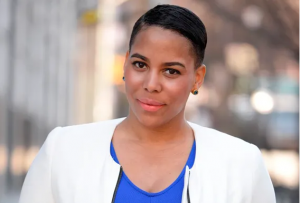
Tarry: I’m in a community here in Brooklyn that was once very disempowered but has changed in recent years. So there are a lot more younger professionals in my community that are not native to Brooklyn, or to this section of Brooklyn.
Initially, it was very quiet, because people were following their protocols. However, after a few weeks, I saw people outside with their dogs and families and less people wearing masks. That has changed recently. The other day I was outside to catch the air, and I was surprised to see a lot more people wearing masks. Maybe that is because Brooklyn has the most number of COVID cases than any other part of New York.
Older people are following through on the governor’s recommendations. You barely see anyone above 55 or 65 outdoors. It remains to be seen what’s gonna happen with this newest lockdown; if the cops are going to be outside or people are going to protest like they were last night. I don’t really know.
BPE: Admittedly, it’s hard to separate any discussion about recovery from the COVID-19 crisis from all this other stuff happening around the nation right now, but it sounds as if people are trying to regroup and regain a sense of normalcy in their lives. Older people are following most government protocols; Gen-Xers are doing things in more moderation; while Millennials and younger people are saying “Down with the system.” Can some of that rebellion be attributed to the natural inclination of youth to feel like they’re going to live forever anyway?
Tarry: Yeah, I think it’s kind of that, because I’ve seen it in different age groups. Between the Millennials and the Gen-Xers, there is some of the feeling of inconvenience and people do not want to be inconvenienced. Then of course, there are some folks who think this is all a big conspiracy or believe, “It can not happen to me; it’ll happen to someone else,” until it actually hits home.
I’ve had clients who have lost loved ones or who themselves become gravely ill with it. They take it very seriously.
BPE: And all of this leads to the personal and societal stress we are seeing?
Tarry: I believe it does.
BPE: Is it healthy for people experiencing overwhelming stress to blame God, the fates, some dark conspiracy, government mandates or the media? You know, pick your poison here.
Tarry: That’s probably the most interesting question I’ve been asked, so I’m going to say thank you for that.
That’s something to think about, you know.
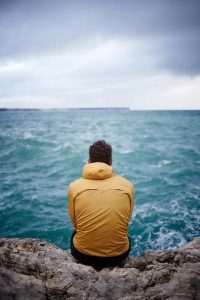
I found that, in the instances where people have actually contracted COVID-19 or have been really impacted by it, if they have a belief system, (their stress) is sort of given to the gods. If something were to happen to them, it’s unnecessary to be resistant; they just continue to work at getting well.
I think those who may not have a belief system worry that something higher than them may not exist. I think that they believe (this virus) is scientifically designed and man made. Many of these people are falling back into the blame-game that surrounded the initial reporting of HIV/AIDS – the way homosexuals and monkeys in Africa were blamed. That’s what I’ve heard in my professional encounters and in generating conversations on the net on social media.
It’s a lot of making up stories, like we do to try to make sense of why this is happening. And I think, when people don’t have an answer, that’s typically what they do.
BPE: So while racism is the hot button issue at this moment, much of this strife is really xenophobia? That whole thing about pointing at “the other?”
Tarry: It often comes down to that
BPE: Where does self-examination figure into this equation?
Tarry: That, to me, has been one of the things I don’t believe people want to focus on, because we’ve seen that with COVID-19.
The people who tend to fear the worst are the people who have more co-morbidities.
We’re glad to be a part of a time which has encouraged a need for people to have healthier lifestyles, which would include bringing back physical fitness into community centers or into churches, or the park. Let’s eat healthy; let’s cut calories. And that’s been great, but depending on where you live, certain places may get that messaging more often than others.
At this point, there’s a higher probability that people with existing illnesses are not going to do as well. So while their destiny comes down to individual responsibility, I think major changes have to be made on a systemic level.
BPE: What are some of the healthy ways to set boundaries, when you’re living with others?
Tarry: That’s something I talk about with my clients and friends all the time. This is something that we tend to avoid.
I think it’s the core of human beings; we don’t want to hurt people’s feelings. So, if we imagine that something we say to someone we care about will hurt them – even if it just hurts them temporarily – we’ll avoid it at all costs. And so, we’re suffering; a lot of times, by ourselves.
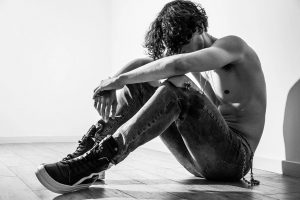
Now, where the internal suffering goes from inside of us to outside of us, within our relationships, is when all that gunk is pressed down. You enclose, and then next, people are seeing you say things that are really irritable, rude or crude. They can’t explain it, because you haven’t been communicating what you need correctly, and what you need might change. But most times, people assume what the other person is thinking, or they will try to predict what someone else may feel like, based on what they feel.
So, I often tell people – especially in romantic or family relationships – you cannot avoid how people feel about what you say, but what you should always do is be honest. Even if you hurt someone’s feelings unintentionally, most likely they will recover.
This is something we don’t learn early enough in developing our social and emotional skills. It’s something we don’t teach kids.
Adults may learn later how to use inviting language, how to use clarifying questions. How to utilize their intention to think clearly and express themselves.
What I do now with all these grownups, is I teach them practical life skills; like, leaving your work at work and not unloading on your partner when you walk through the door.
Being relaxed and having a real conversation, when you’re both at ease. When you’re not looking at social media; when you’re not watching the news or trying to work from home.
At these times, where everyone’s doing everything from their house, you have to expect some conflict and understand why people would get on each other’s nerves.
Sometimes, you have to repeat your expectations and their meanings. And don’t accept responsibility for how someone feels, but be clear about what your intent is when you speak. If they feel hurt, let down or confused, allow them to feel those feelings. I don’t think it’s helpful to say, “Don’t feel bad.” Feel whatever you may, but watch as they recover from that hurt and continue to dialogue about your expectations.
BPE: So, it’s okay when somebody has a bit of a meltdown, to just smile, acknowledge their feelings and move on?
Tarry: Absolutely, or not even smile. We don’t have to work at being “positive” all the time. But we should work at being healthy and having healthy relationships. We’ll be able to communicate a lot more often, if we get off of our phones, be more present in the hearing and engaged in how we talk. Don’t text a conversation that matters. Pick up a phone, call, and be willing to be uncomfortable. Face difficulties, because if you don’t, they can grow.
BPE: We’ve been talking about trying to set healthy boundaries with people you’re living with, but we’ve got another dynamic going on with COVID, and that is this idea of social distancing. How is social distancing affecting interpersonal relationships?
Tarry: A lot of ways. I don’t know who came up with that term to begin with, but it’s so conflicting, because human beings are social in nature. Now, you tell them to distance themselves from people, and depending on how well developed your imagination is, you could take that a lot of different ways. And that’s what has happened. Some people are like, “Oh, I did socially distance – I don’t go to work every day,” but they’ll be outside in the park with strangers, talking face to face without a mask on.
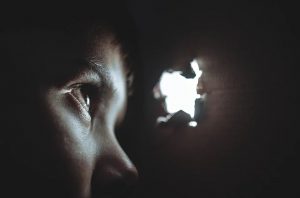
So, I would have called it social incubation, because it’s saying, “Yes, I’m a human being who needs to engage with others, but there’s a certain level of distance between me and you,” without using the word distance. “I need to protect myself and other people from potential illness.” So, if I use a term like “social responsibility” or “social incubation,” I think that is a different feeling altogether than saying he’s socially distant.
In the end, what people got from that is what we’re seeing in the world; which is, we have to avoid one another. And imagine how traumatizing that is for people who are already socially awkward; who don’t know how to socially engage with others and feel alienated because they don’t have friends or close relatives.
As a result of that, I think it’s created feelings of loneliness in a lot of people; more alienation or isolation, and it verifies anxiety, because people don’t know when this will end.
BPE: Do you believe this anxiety and loneliness people are experiencing is going to have long term effects on their mental health?
Tarry: I think it’s already increasing social awkwardness for many people who don’t know how to relate via social media. As a result, you have people who are trying to date but don’t know how to be themselves. They don’t want to get close to anything uncomfortable. Someone says the wrong thing on an app, and they get swiped away. People ghost you or only text you or block your phone number. So I think it’s just going to add to what is already a bad situation.
We have to practice being social – it’s a skill. People need that skill, along with etiquette, compassion, and honesty. Not feeling what it’s like to be in someone else’s shoes – because you don’t have to be, with your distance – makes it that much easier to not have to consider someone else’s feelings.
BPE: How much do humans miss a simple touch?
Tarry: I think very much. That’s one of the conversations I had with a client recently who was talking to me about an ex-lover.
Although periodically she was in contact with him, she didn’t want the relationship the way that it once was. Still, after a year of being apart, there are things she missed about him; and when I questioned her further, she said she missed the way he touched her. She remembered being touched by him or touching him, and it felt good.
I think that’s really important.
As I’ve explored other feelings in my clients’ sessions, most of my clients – regardless of whether they have had COVID or not – tell me that this is really hard to be inside and not have someone to hug. Or not to be able to see friends and kiss them on the cheek. People have really been much more in tune with what they’re missing, as they sit quietly now by themselves.
BPE: Conversely, I’ve read that divorce filings are on the rise. Is this something that we should have expected, and is this inevitable?
Tarry: Should we have expected it? Not necessarily for the reason that we may think it’s obvious. What’s happening now may be a reflection of societal change. I like to quote Esther Perel on this.
Esther says that, when people lived in agricultural times, everything – work and socially related – revolved around the family unit. Today, people are very disjointed and to some degree detached from family life. They go everywhere else to be filled – often it’s social media. Other people have multiple relationships and self interests. As a result of this, people have not really built that deep intimacy that by nature we do crave. We are searching for something, and we’re not quite sure what it is that we’re looking for.
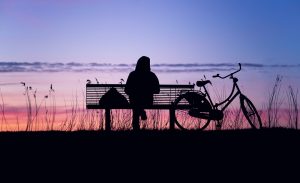
And so, because of our short attention span, which evidence has proven social media has done to us, we have a decrease in our focus. Add to that, getting anything you want is literally at your fingertips, this has given people that sense that they don’t have to work at anything, including building intimacy.
When I was a kid, I had a house phone, and my friend called the house. I had sleepovers, and we had parties for our birthdays. In the summer, we went to each other’s homes. And I would often stay with my grandparents during the summer. This was how communities grew and how we socialized.
Now, we’re taking camp away from kids because of conflict!
And as a result, it has created lapses in our connection – psychologically – to build the most lasting, intimate connection. And I think, because that was already in progress, this time just makes it so much easier for individuals to have much less patience to wait on something to change.
People are using all sorts of reasons to look elsewhere for affection or attention. In some cases, couples are separating, so that one of them can go “save the world!” It’s a kind of narcissistic appetite. I think this time (of isolation) is just going to increase (this division), because people are looking for something to soothe themselves.
BPE: You just mentioned people neglecting intimacy, but how can one express dissatisfaction with their intimate relationships without offending or hurting their mates?
Tarry: Kind of like what we said earlier, we should not expect that people are not going to be injured in a relationship. That’s one key thing that continues to come up in every conversation I have with couples, or with people who are seeking to date.
If they are empathetic, or if they do care about those that they’re around, then they’re going to avoid trying to hurt someone’s feelings.
You have no control over how someone else will react, because everyone’s coming from a different perspective.
I often coach my clients to write it out, put down a couple of points as to what you want to say, so that you’re clear, and then go back to the emotional first 24 hours. You need to say everything you need to say – all those things in one conversation.
Get closer to it, because that’s really transformative.
BPE: That approach really sets the stage for the last two points I’d like you to address here: Are there any physical techniques for managing COVID-related anxiety, and what strategies do you recommend for maintaining fit mental health?
Tarry: The one thing that’s available to us all is our breath. It costs you nothing to breathe, but it costs a lot to not breathe properly.
What I mean by that is, we know the evidence of how people are faring in COVID – the people who fare worse are the people who have respiratory issues, along with other co-morbidities.
So, if you’re not breathing properly – which is really with your diaphragm – then you are breathing from your chest. Those breaths are shallow and become anxious and rapid when we’re feeling stress. So I work on having people breathe from their diaphragm, which levels their heart rate, blood pressure and with eliminating thoughts. I always say to them, this is the one thing you can do on your own, and it’s helpful to practice, when you’re not distressed.
When we do that in our sessions, what comes back from my clients is, “Oh, I feel much more calm; I can sleep better and have conversations with people and not be totally in my head.”
I always say to them, “That’s because you’re learning how to breathe through anything.”
“That’s available to you.”
(Lede photo/image from Pixabay – No attribution required.)

Anthony C. Hayes is an actor, author, raconteur, rapscallion and bon vivant. A one-time newsboy for the Evening Sun and professional presence at the Washington Herald, Tony’s poetry, photography, humor, and prose have also been featured in Smile, Hon, You’re in Baltimore!, Destination Maryland, Magic Octopus Magazine, Los Angeles Post-Examiner, Voice of Baltimore, SmartCEO, Alvarez Fiction, and Tales of Blood and Roses. If you notice that his work has been purloined, please let him know. As the Good Book says, “Thou shalt not steal.”
